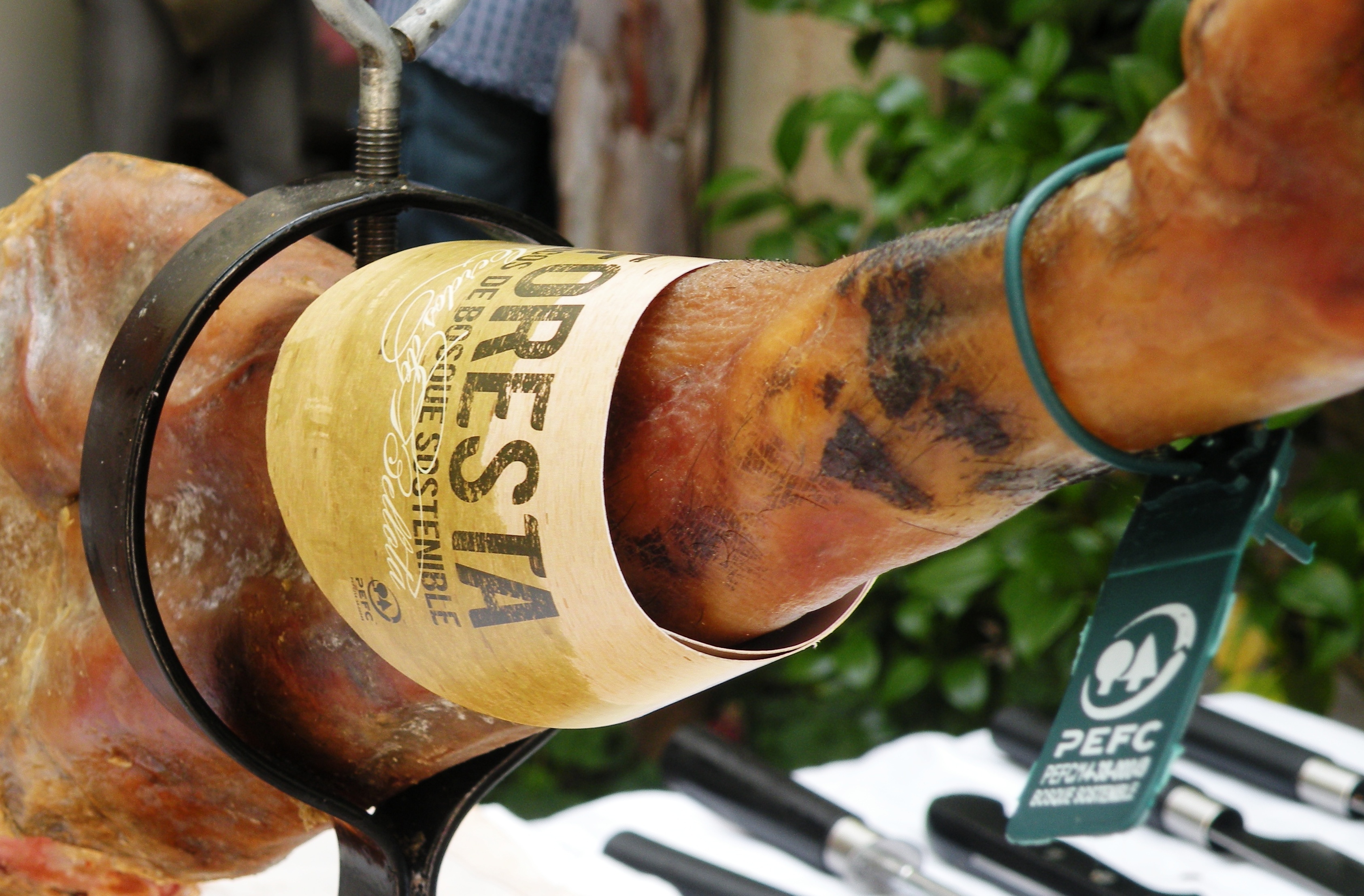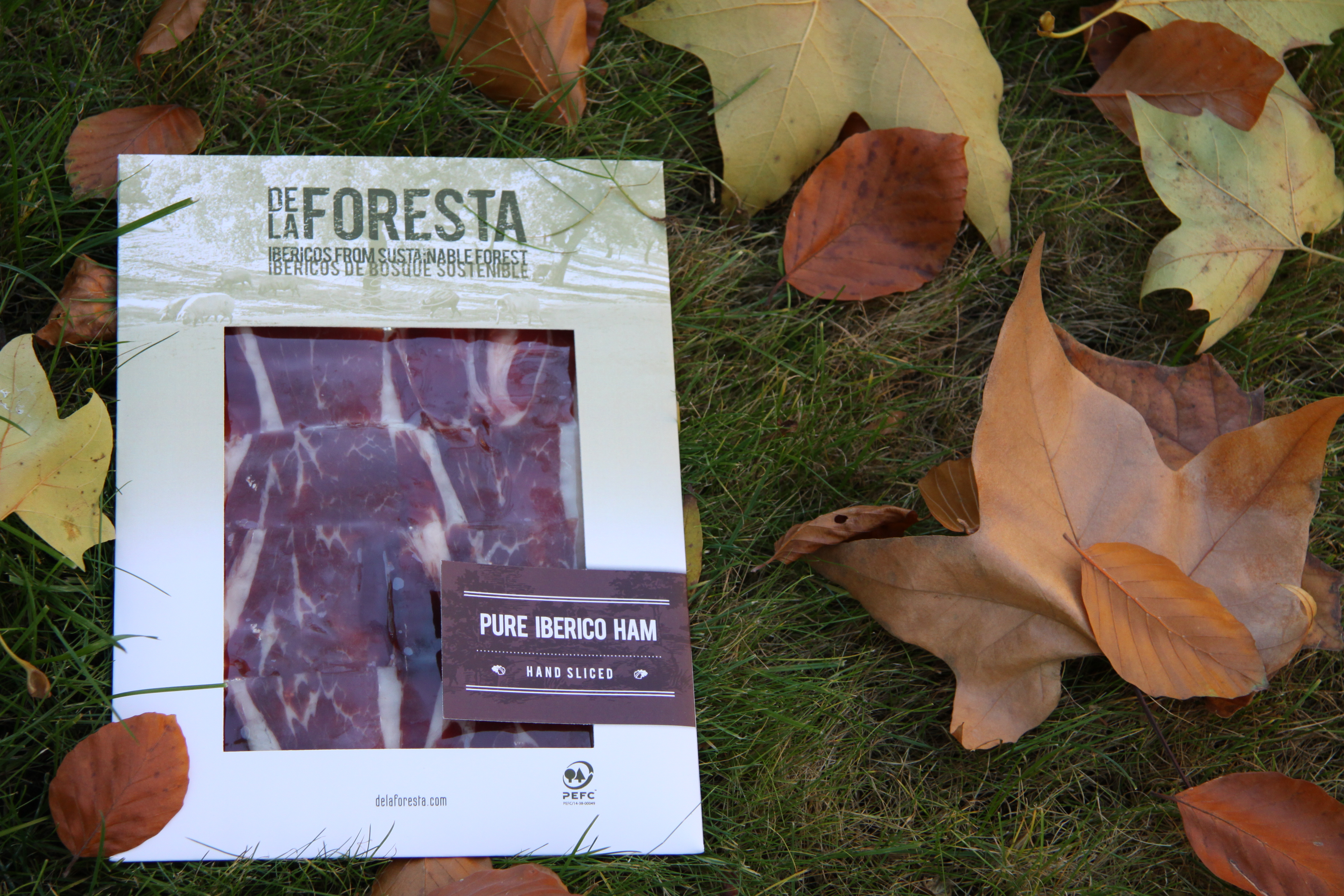DELAFORESTA: It’s about the ham!
Spanish dehesas, old forests dominated by holm oaks and cork trees, are home to the world’s first certified ham.
DELAFORESTA: It’s about the ham!
23 July 2012 Food
A distinguishing feature of Spain is its Mediterranean climate: very hot, dry summers and mild winters accompanied by erratic rainfall. Mediterranean forests along with the diversity and spatial distribution of their flora and fauna have been defined by this unique climate, and are home to the world’s first certified ham.
A specific type of Mediterranean forest found in the Iberian Peninsula is the dehesa, old forest dominated by holm oaks and cork trees. Dehesa forests resulted from the conversion of forests by human activity over the course of history where instead of representing a negative or exploitative force, man’s influence has played a positive role in the development of the ecosystem.

In a well-managed dehesa livestock farming, hunting, cork production and tourism, exist alongside and are compatible with biodiversity conservation, habitat preservation and protection of species.
For many years, Acción Forestal has been acting as a consultant to livestock farmers in southern Spain advising them on how best to care for forests so that they yield top-quality forest products. In 2007, the organization set up a PEFC group forest certification system that includes more than 80 plantations, covering an area of more than 30,000 ha. Under this system private dehesa forests are managed according to PEFC requirements.
“The PEFC certification of dehesas has promoted soil conservation and regulation of the water cycle by preventing erosion, maintaining higher environmental humidity, preserving the fauna and flora and using forests as a carbon sink. Taken together these offer high levels of sustainability and stability in ecological and productivity terms,” explained forestry engineer and company manager, Andrés Domínguez, who has more than 20 years’ experience of ecosystem management.
Among the several products yielded by a well-managed dehesa, the Iberian pig is one of the most sought after. It is coveted for its fine breed, selection and feed which includes nutritious acorns rich in sugar, fibre and protein. These characteristics combine to offer a jamón ibérico which is distinguished not only by its unequalled texture, aroma and taste but also by its beneficial anti-oxidant properties.
Today, there is growing demand among consumers for healthier and natural products typical of the Mediterranean diet, and produced using environmentally friendly practices. This has inspired Acción Forestal to develop a project for the certification and commercialization of non-timber products from certified forests: DELAFORESTA: IBÉRICOS PROCEDENTES DE BOSQUES SOSTENIBLES (Delaforesta: Iberian Products from Sustainable Forests).
One of the first products to achieve certification is the hams made from the Iberian pigs that roam the pastures and oak groves and feed on naturally produced acorns. This is the world’s first certified ham. In the future, Acción Forestal plans to expand the range of certified forest products to offer game meat and honey.
“For us, obtaining PEFC chain of custody for Iberian products offers guarantees of better quality environmentally friendly products. It also sets them apart from other similar products making them potentially more attractive to consumers,” comments Segundo Rodríguez, head of forest certification at Acción Foestal.
According to Andrés Dominguez, PEFC Chain of Custody certification offers guarantees about the sustainable management of the dehesas and assurances that forest-based products can be traced throughout the value chain from the forest to the market.
“We are leading all processes from selecting of the livestock right up to the final product. We work closely with local Spanish ham specialists who are responsible for processing and curing hams in a cellar.The best way to boost traditional Iberian production and safeguard rural employment is to integrate sustainable forest management with local livestock producers’ interests.”
More information about certified hams and other certified non-timber forest products is available on the Acción Forestal website.
